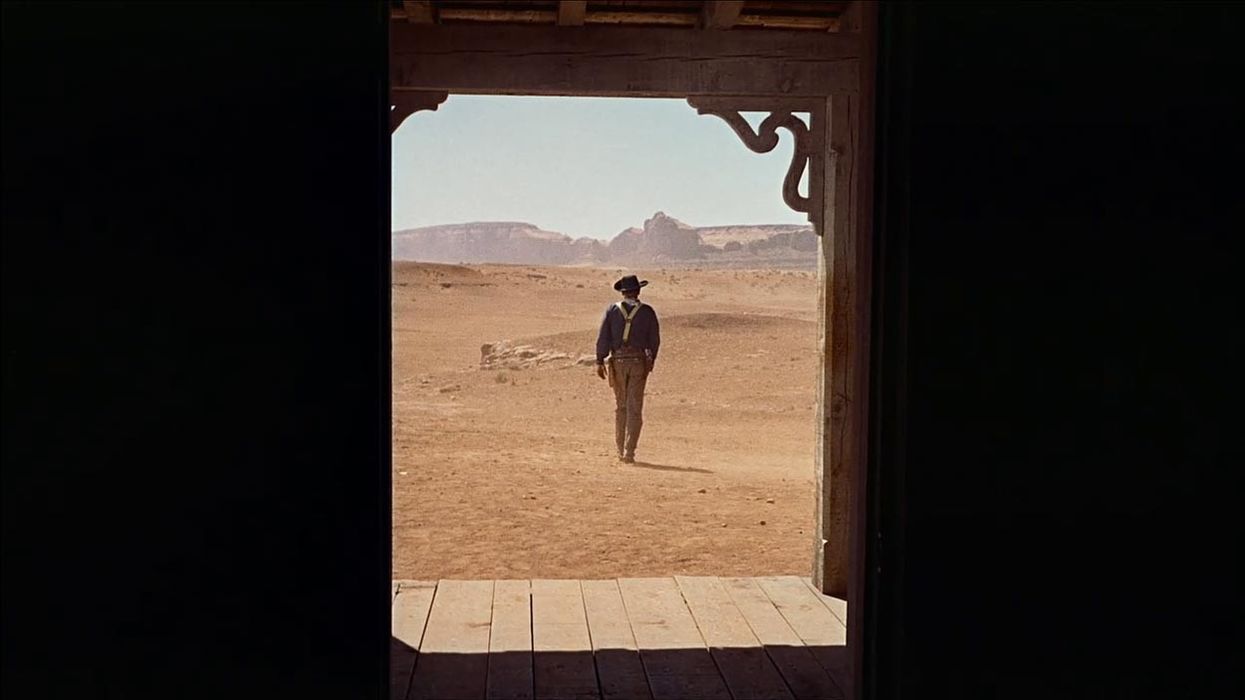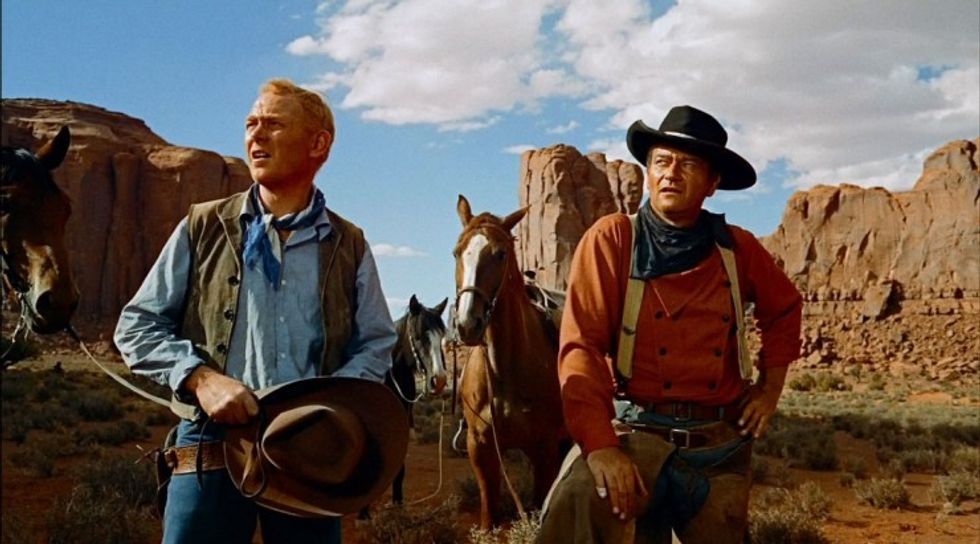How Martin Scorsese Was Inspired by 'The Searchers'
Martin Scorsese is one of the biggest fans of movies.

One of the most fun things about Martin Scorsese is his unabashed willingness to share his love of cinema with the world. I've been nerding out over the last few weeks reading articles he wrote and digging up his words.
Recently, I was reminded that he wrote an opinion piece in the Hollywood Reporter in 2013 about how much influence John Ford's The Searchers had on him as a filmmaker, and I wanted to share it here.
This was the John Wayne movie that subverted a lot of cowboy tropes and brought an antihero to the screen. We were following a cowboy who was a Confederate veteran, looking for his missing niece. She'd been taken in a raid. Of course, the reveals of his baggage with the Indigenous people, his surly attitude, and his violent past all add up to a story where it feels like there are no winners, just humans trying to get by the best they can. And sometimes, that best is not good enough, and forces them out of society.

As Scorsese puts it, "Like all great works of art, it’s uncomfortable. The core of the movie is deeply painful. Every time I watch it—and I’ve seen it many, many times since its first run in 1956—it haunts and troubles me. The character of Ethan Edwards is one of the most unsettling in American cinema. In a sense, he’s of a piece with Wayne’s persona and his body of work with Ford and other directors like Howard Hawks and Henry Hathaway. It’s the greatest performance of a great American actor."
This uncomfortable nature of the character and his morals is easy to unlock through Scorsese's career. From Mean Streets to The Irishman, we've seen his propensity for tackling the American myth and showing the people involved as flawed, and at times, villains.
SlashFilm did a fun write-up on how The Searchers carried over Scorsese's entire career.
Of course, I think this love of The Searchers echoes in one of Scorsese's first movies, Taxi Driver. It's about another veteran who's struggling to find his place after a war. You could say America as a whole was in the wrong during Vietnam. This guy, with clear PTSD, comes back to America and sees the myth destroyed in front of him. New York is crumbling, and he doesn't like it. He works to save the life of a young girl who has fallen prey to an underworld. One who's not sure she wants to be saved, just like in The Searchers.
Again, from Scorsese's THR piece:
"In truly great films—the ones that people need to make, the ones that start speaking through them, the ones that keep moving into territory that is more and more unfathomable and uncomfortable—nothing’s ever simple or neatly resolved. You’re left with a mystery. In this case, the mystery of a man who spends 10 years of his life searching for someone, realizes his goal, brings her back, and then walks away. Only an artist as great as John Ford would dare to end a film on such a note. In its final moment, The Searchers suddenly becomes a ghost story. Ethan’s sense of purpose has been fulfilled, and like the man whose eyes he’s shot out, he’s destined to wander forever between the winds."
That inspiration and mirrored story can be seen in all of Taxi Driver, which is one of the greatest films ever made. As we've covered in our end of Taxi Driver article, Scorsese leaves Travis Bickle in the same light. He's not wandering in life, but maybe in death. Fantasizing about where his actions might bring him, or maybe in his own personal heaven.
While it's a very different ending than The Searchers, you can still see one man's longing to rejoin the society from which he's been rejected, even though he thinks the pain and death he's seen is more truth than any of them can handle.
Let me know what you think in the comments.











